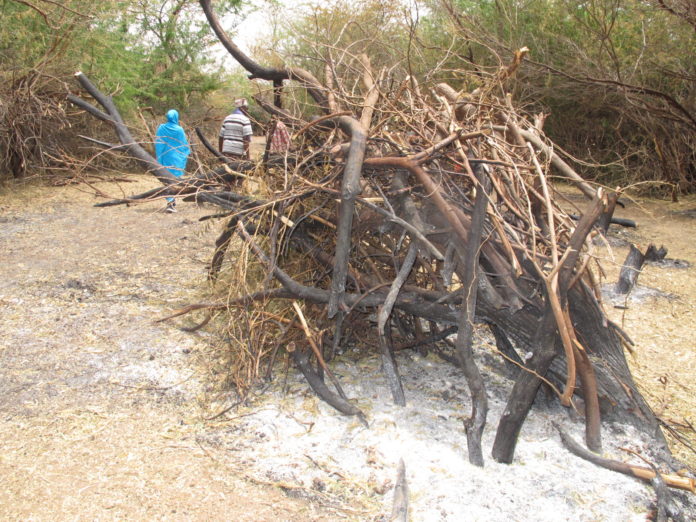|
Getting your Trinity Audio player ready...
|
By Mary Mwendwa
Residents of Korbesa village in Merti district of Isiolo County are now turning Prosopis Juliflora ( mathenge ) into useful activities that are helping them generate income.
A region that has been experiencing recurring drought and famine, mathenge had brought more havoc to them than saving them from devastating effects of climate change.
Many of the villages confess that Mathenge weed was destructive and dangerous to their livestock before they discovered making charcoal out of it.

Noria Tari, a 45-year-old mother of five says that in her village they had over 1000 donkeys and lost 800 of them to Mathenge.” Our donkeys died after eating mathenge leaves. We rely on donkeys for transport so much, ferrying water and carrying goods is the main job they do. When the seeds of mathenge fall in water during floods they affect our skin too,” She says .
Adan Abduba a father of six narrated how the weed had made thick thickets which haboured wild animals like hyenas and lions. “Mathenge thickets had even blocked the path to the watering points where we get water for domestic use and for our livestock.”
“We initially took Mathenge as our worst enemy but now we are reaping their benefits because we are cutting them and making charcoal for sale.”
Due to these problems Korbesa community decided to turn their woes into something worth.

They received training through a community-based organization funded by Cordaid, a non – governmental organization. Here, they were trained on many aspects of livelihood projects like how to adapt to climate change including how mathenge can be turned into something beneficial.
Tari confirms how Borana community viewed charcoal burning as something outdated but when mathenge became a havoc they have accepted and are now making money out of it.
The challenge they have now having a special kiln that will see them have no wastage and increase income.
Mathenge is invasive and often clogs up land, killing all other vegetation. When the tree is harvested the population density reduces for a time but it grows back with time.
In Kenya, the weed is found in several districts arid and semi Arid areas. The name Mathenge, is traced back in Hola town.
It is said in 1980s government officials were keen on preventing soil effects of desertification and started a tree planting campaign, these officials gave top priority to trees that were indigenous to the area.
A man known as Mathenge was behind this initiative and that is how the name came to be locally famous.














